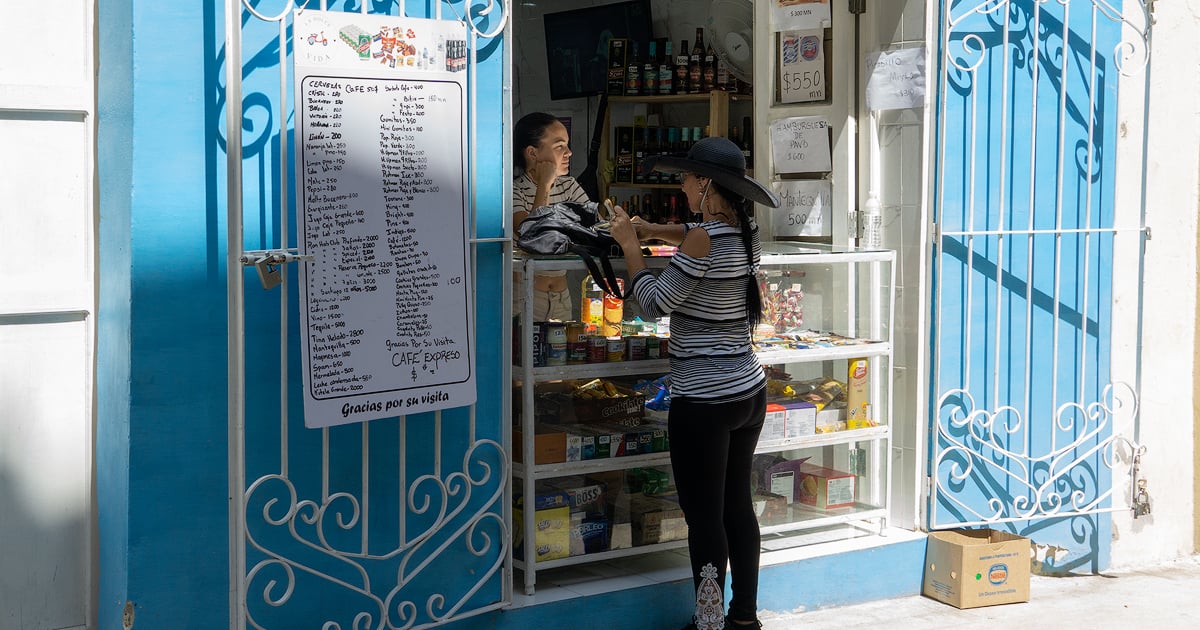In a recent blow to private enterprise on the island, the Communist Party of Cuba has taken another step to limit economic freedom. The Official Gazette of the Republic (Issue 119) published a resolution on Thursday (Resolution 56) by Minister of Domestic Trade, Betsy Díaz Velázquez, which "automatically cancels licenses for engaging in wholesale activities, previously granted to private micro, small, and medium-sized enterprises (MSMEs) and non-agricultural cooperatives that have this included as a secondary activity in their social purpose."
This regulation, which will be enforced starting December 5th, is ostensibly aimed at "organizing" both wholesale and retail commerce within the private sector. However, the resolution fails to provide reasons for this prohibition. The state-run media outlet Cubadebate merely reiterates the official stance, stating that the decision will be gradually implemented and will "encourage" (or rather force) "partnerships between state and non-state economic actors." It conveniently omits any mention of the state's inefficiency burden.
The Ministry emphasizes that collaboration with non-state economic players is beneficial because it enables the utilization of state infrastructure, transportation, and commercial expertise. The gradual implementation refers to a 90-day period during which private MSMEs and non-agricultural cooperatives currently involved in wholesale trade (acting as intermediaries between sellers and buyers, whether they are MSMEs or state institutions) must confirm their intention to continue this activity with state enterprise participation. They must update their social purpose and commercial license, a process that the bureaucracy promises will be conducted "expeditiously."
Those who choose not to affirm this coerced partnership with state entities will have 120 days to liquidate their stock. They can sell this merchandise at the retail level, provided it is defined in their social purpose and they possess the necessary commercial license.
The Ministry of Domestic Trade clarifies that private companies may continue retail trade (sales or services to the population) if it is approved in their social purpose or project and they hold the required commercial license. Furthermore, they emphasize that self-employed workers are prohibited from engaging in wholesale trade. This new resolution automatically cancels the registration of wholesale trade activities of national or imported goods for self-employed individuals.
Can MSMEs Engage in Wholesale Trade?
Micro, small, and medium-sized enterprises can conduct wholesale trade directly with state entities or through state wholesale marketers. To do so, they must express their intention to continue this activity and update their commercial license within 90 business days starting from December 5th. These procedures can be completed in person or online at the Central Commercial Registry.
A Year of Setbacks
In July of this year, the Cuban government revoked the import licenses for nearly one-third of the private businesses that were authorized to do so. Prime Minister Manuel Marrero Cruz informed National Assembly deputies that "it was decided to close this facility for 24 of the 73 companies approved for import due to low activity levels and poor performance."
Furthermore, last summer, President Diaz-Canel announced that “it's time to take action,” confirming the regime's shift away from a cautious economic opening and reinforcing its intent to subject the activities of "new economic actors" to state directives and centralized economic planning.
Just a month later, in August 2024, the Cuban regime, through the Council of Ministers, issued Decree 107, which imposed new restrictions on private MSMEs, non-agricultural cooperatives, and self-employed workers.
Understanding Cuba's Economic Restrictions
What is the impact of the new resolution on private enterprises in Cuba?
The new resolution significantly restricts private enterprises by revoking their licenses to engage in wholesale activities unless they form partnerships with state entities. This limits their autonomy and could hinder their business operations.
How can private enterprises continue wholesale trade in Cuba?
To continue wholesale trade, private enterprises must update their commercial licenses and confirm their willingness to partner with state enterprises within 90 business days from December 5th.
What alternatives do businesses have if they do not want to partner with state entities?
Businesses that do not wish to partner with state entities have 120 days to sell their stock at the retail level, provided it aligns with their social purpose and they hold the necessary commercial license.
